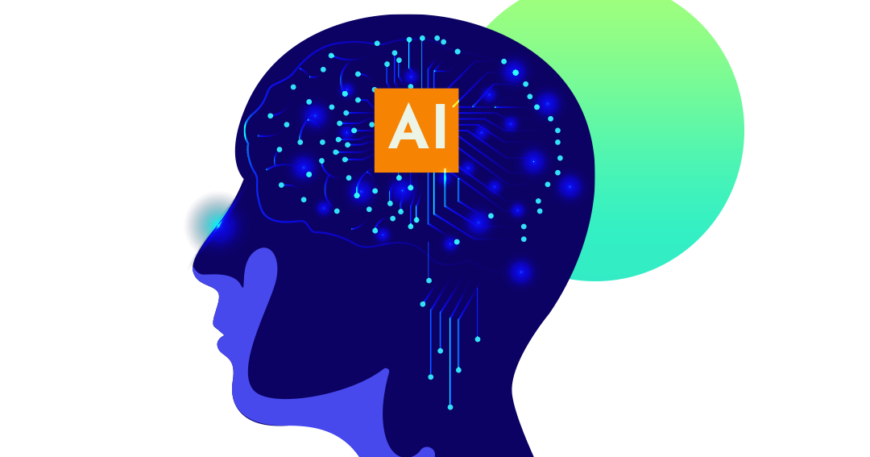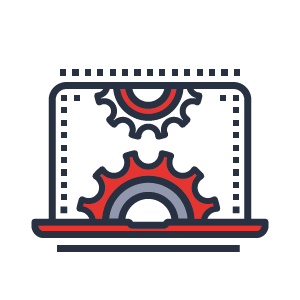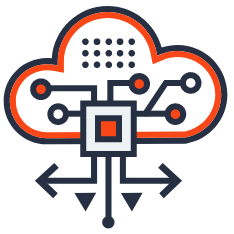
Business Process Automation (BPA) is a pivotal component of modern enterprise operations. This technology aids in streamlining and automating routine tasks, thereby increasing productivity, improving accuracy, and freeing up valuable time for employees to focus on strategic initiatives.
The advent of Artificial Intelligence (AI) in recent years has exponentially amplified the effectiveness of BPA, heralding a new era in digital transformation. This article delves into how AI is shaping BPA, outlining its impact on various industries and addressing the transformation it promises to bring.
As we navigate the digital age, businesses are consistently seeking ways to improve their operations, optimize productivity, and gain a competitive edge. One of the key strategies that has emerged to meet these objectives is Business Process Automation (BPA). BPA involves the use of technology to automate routine business processes, making them more efficient, less prone to error, and allowing valuable human resources to focus on more strategic tasks.
However, the landscape of BPA is rapidly evolving, and it’s not just about automating processes anymore; it’s about making them smarter. This is where Artificial Intelligence (AI) comes in. The integration of AI with BPA isn’t merely a technological advancement; it’s a paradigm shift in the way businesses operate, bringing a wave of transformative changes.
AI, with its cognitive capabilities, is augmenting BPA by adding layers of intelligence, decision-making, and predictive analysis capabilities. It’s expanding the horizon of automation from simple, rule-based tasks to complex, decision-based processes, leading to what many now refer to as intelligent automation.
The convergence of AI and BPA is creating a powerful synergy that is reshaping industries, altering business models, and redefining customer experiences. This synergy is not just enhancing operational efficiency and productivity; it’s providing businesses with valuable insights, aiding strategic decision making, and paving the way for innovative solutions.
But the journey of integrating AI into BPA is filled with both enormous potential and formidable challenges. As businesses embark on this journey, they must understand how to effectively harness the power of AI, mitigate risks, and manage the transformation it brings. This article aims to provide a comprehensive understanding of how AI is adding value in the Business Process Automation landscape, its impact on various industries, and the path towards successful integration.
AI and BPA: A Synergistic Relationship
Artificial Intelligence and Business Process Automation form a harmonious union that’s ushering in a new era of corporate efficiency and decision-making. The relationship is one of remarkable synergy, with each element enhancing the capabilities of the other, resulting in a sum that is significantly more potent than its individual parts.
At the heart of Business Process Automation is the endeavor to automate routine tasks, making business processes faster, more efficient, and less prone to error. Traditional BPA systems are built to handle rule-based tasks. They follow predefined rules and procedures, replicating repetitive tasks that humans perform, freeing up time and resources. However, traditional BPA systems are not equipped to handle complex, decision-based tasks that require human-like cognition and judgment.
This is where Artificial Intelligence comes into play. AI, with its advanced capabilities, is revolutionizing how automation is perceived and implemented. AI allows systems to understand, learn, interpret, and make decisions, much like a human brain but with significantly more speed and accuracy. Machine Learning, a subset of AI, empowers systems to learn from past data, adapt to new situations, and predict future outcomes. Natural Language Processing, another aspect of AI, allows systems to understand and interpret human language, enabling them to interact with humans in a more natural and intuitive manner.
By integrating AI with BPA, businesses are not just automating their processes; they are making them intelligent. This synergy results in what we call Intelligent Process Automation (IPA). IPA transcends the limitations of traditional BPA, expanding the horizon of automation to include complex, decision-based tasks. It takes automation from merely ‘doing’ tasks to ‘understanding’ and ‘learning’ from them, enabling continuous improvement and adaptation.
One area where this synergy is profoundly evident is Robotic Process Automation (RPA). RPA involves using software ‘bots’ to mimic human actions and automate rule-based tasks. The integration of AI into RPA has given birth to intelligent bots, which can understand context, make data-driven decisions, learn from their experiences, and handle a variety of complex tasks. These intelligent bots are transforming industries, automating everything from customer service to financial operations, significantly enhancing efficiency and productivity.
The symbiotic relationship between AI and BPA is truly transformative, marking a shift from simple automation to intelligent automation. This paradigm shift is set to redefine how businesses operate, driving innovation, improving decision-making, and providing unparalleled operational efficiency. However, harnessing this synergy is not without its challenges. It requires strategic planning, investment in the right technology and resources, and an organizational culture that embraces change and innovation.
AI-Driven Automation Across Industries
AI’s infusion into BPA has redefined automation across diverse sectors. Let’s explore some examples:
Healthcare
AI-driven automation has revolutionized administrative tasks like patient scheduling, record management, billing, and insurance processing, enabling healthcare professionals to focus more on patient care.
Finance and Banking
AI has transformed processes like fraud detection, risk management, customer service, and compliance reporting. Using predictive analytics and ML algorithms, banks can make more accurate predictions, enhance security, and provide personalized customer experiences.
Retail
AI-powered automation in inventory management, demand forecasting, and customer service has led to improved operational efficiency and personalized customer experiences.
Manufacturing
AI-enabled automation helps in predictive maintenance, quality control, supply chain optimization, and demand forecasting, thereby reducing downtime and increasing efficiency.
The Implications of AI in BPA
Efficiency and Productivity
AI’s capability to analyze large amounts of data quickly and accurately has led to increased efficiency and productivity. Tasks that would take humans hours to complete can now be done in minutes, with better accuracy and negligible errors.
Cost Reduction
Automation reduces the need for human intervention, which directly translates to cost savings. Additionally, the reduction of errors leads to fewer reworks and corrections, thereby saving time and resources.
Enhanced Decision-Making
AI capabilities like predictive analytics and real-time data analysis provide businesses with valuable insights, enhancing decision-making capabilities and business strategies.
Improved Customer Experience
AI-driven automation allows businesses to provide personalized services and experiences, thereby enhancing customer satisfaction and loyalty.
Final Analysis
The synergy between AI and BPA heralds a new era in the digital transformation landscape, bringing a paradigm shift in how businesses operate. However, as with any disruptive technology, harnessing its full potential requires a comprehensive understanding of its capabilities and implications, overcoming challenges, and adapting to change.
The future belongs to businesses that can adapt and evolve. Thus, if you haven’t yet started your AI and BPA integration journey, now is the time. Invest in the right technology and resources, plan a comprehensive implementation strategy, and prepare your workforce for this change. As we step into a new phase of digital transformation, powered by AI-driven BPA, the question isn’t whether we can afford to adopt it, but whether we can afford not to.







